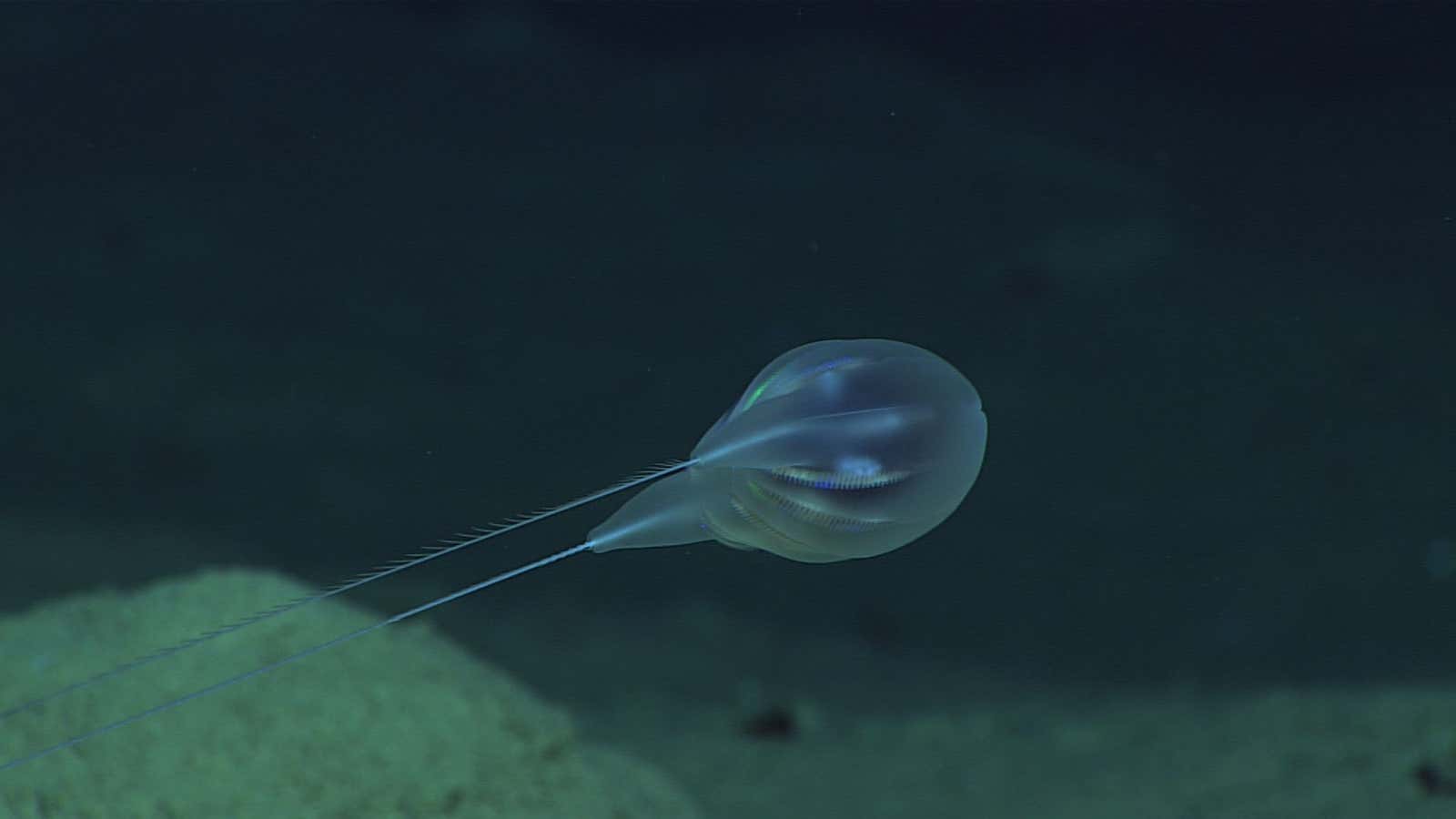A team of scientists backed by the U.S. government has mounted a unique crowd-sourced exploration of the largely unknown deep sea off the coast of Puerto Rico.
The first two legs of their 52-day expedition were spent mapping the uncharted seafloor. In April, during the mission’s third and final leg, the scientists’ focus shifted to better understanding deep-sea ecosystems and the creatures found there.
They sent their remotely operated vehicle (ROV) on some of the deepest dives—20,000 feet—ever conducted in the region. It gathered data and recorded video that the scientists streamed online. The video they captured (above) is breathtaking.
Researchers around the world were able to view the video in real time and contribute to the expedition by either calling the ship or logging into an internet chatroom.
“There will be a starfish expert or a jellyfish expert or a coral expert and so they’re all working with us together, which is very unique,” said Andrea Quattrini, the science co-lead for the expedition. “On other research expeditions you only have a certain number of bunks on the ship and so only say 12 or 15 scientists can go at once.”
The scientists, who are supported by the U.S. National Oceanic and Atmospheric Administration, and used NOAA’s Okeanos ship for the expedition, found several creatures so new to us, they don’t even have names. In a total of twelve dives, they saw 100 species of fish, 50 species of deepwater corals and hundreds of other invertebrates, many of which had never been seen in their natural habitat. They’re still analyzing the data they collected, but have already identified two new species: a jellyfish-like animal called a ctenophore and a new type of fish.
“It’s pretty amazing that we haven’t been there yet, exploring really deep depths,” said Quattrini.
